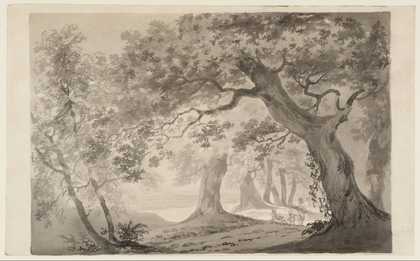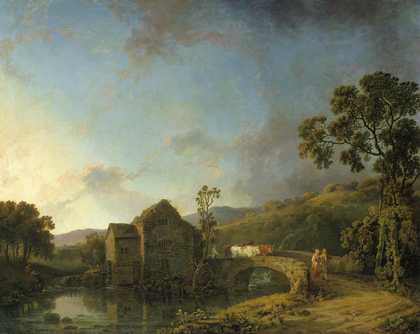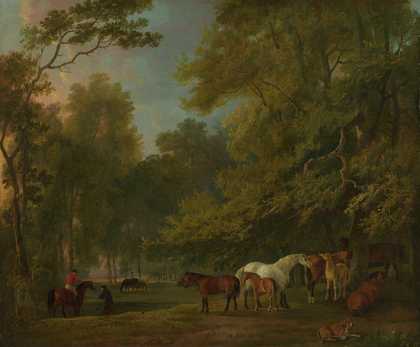Biography
George Barret Sr. (c. 1730 – 29 May 1784) was an Irish landscape artist known for his oil paintings and watercolours. He left Ireland in 1762 to establish himself as an artist in London and quickly gained recognition to become a leading artist of the period. He exhibited at the Society of Artists of Great Britain and was able to gain patronage from many leading art collectors. Barrett with other leading members left the Society in 1768 to found the Royal Academy, where he continued to exhibit until 1782.
Barrett appears to have travelled extensively in England including the Lake District and the Isle of Wight, Wales, and Scotland to undertake commissions for his patrons, but he does not appear to have travelled abroad. Oil paintings of Tivoli in Italy have been attributed to him, but it is much more likely that they are the work of his son George Barret Jr. He suffered from asthma and this caused him to move in 1772 to Westbourne Green, at the time a country village to the west of Paddington.
While he earned considerable wealth from his paintings, he has been described as being "feckless" with money. He was helped in 1782 by Edmund Burke, with whom he had become friends when Burke attended Trinity College, Dublin. On Burke's recommendation he obtained the appointment of master painter of Chelsea Hospital, a post he held until his death in 1784. At the time of his death his widow and children we left destitute, but the Royal Academy granted her a pension of thirty pounds a year.
This biography is from Wikipedia under an Attribution-ShareAlike Creative Commons License. Spotted a problem? Let us know.
Read full Wikipedia entry



